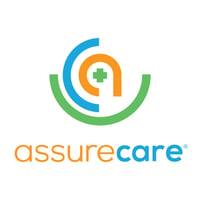
Utilization Management
Verify eligibility, optimize reviews, and streamline appeals and grievances.

Utilization Management
Verify eligibility, optimize reviews, and streamline appeals and grievances.

Care Management
Enable preventative care, manage medical interventions, and efficiently report on program outcomes.

Medication Management
Perform and bill medical services, ensure medications are safe and effective, and identify ways to improve care.

Quality Management
Improve outcomes, lower costs, and adhere to standards, such as HEDIS, Stars, and PQA.

Specialty Pharmacy

Electronic Health Records (EHRs) have become an integral part of the healthcare industry, providing a digital platform for storing, managing, and sharing patient health information. With the advent of new technologies, Electronic Health Record software are undergoing significant changes to improve patient care, data security, and interoperability.
By expediting patient care, enhancing provider coordination, and lowering medical mistakes, Electronic Health Record systems have transformed the healthcare sector. The future of EHRs is expected to be even more exciting as a result of new trends and technologies that will revolutionize the way healthcare is provided.
Here are some of the emerging trends and technologies to watch for as EHRs continue to evolve.
The Role of AI in the Future of EHRs
AI has the potential to transform healthcare in numerous ways, including improving the efficiency and effectiveness of Electronic Health Records (EHRs). Examples of how AI can play a role in the future of EHRs include data entry and documentation, clinical decision support, predictive analytics, natural language processing, and patient engagement.
AI can automate data entry and documentation tasks, identify potential diagnoses, recommend treatment plans, suggest medication dosages, and provide clinical decision support. Predictive analytics can identify patients who are at risk of developing certain conditions or who are likely to experience adverse events.
Natural language processing can be utilized to analyze unstructured data in EHRs, such as clinical notes and patient feedback, and provide valuable insights into patient preferences, treatment outcomes, and areas for improvement in care delivery. AI also has the potential to improve patient engagement by providing personalized health recommendations, reminders for appointments and medications, and educational resources.
Integrating Wearable Device Data into EHRs to Improve Patient Outcomes
Wearable devices such as fitness trackers, smart-watches, and health monitors are becoming increasingly popular, with people using them to track their physical activity, sleep, heart rate, blood pressure, and other vital signs. These devices generate large amounts of data that can be used to improve patient outcomes by providing healthcare providers with a more complete picture of a patient's health status. Here are some ways that data from wearable devices can be integrated into EHRs to improve patient outcomes:
Conclusion
The future of EHRs is exciting, with emerging trends and technologies that have the potential to transform the way healthcare is delivered. AI, interoperability, telehealth, blockchain, voice recognition, and patient engagement are just a few of the emerging trends to watch for in the years to come. AI has the potential to revolutionize the way EHRs are used in healthcare by automating data entry and documentation tasks, providing clinical decision support, offering predictive analytics, analyzing unstructured data, and improving patient engagement.
Wearable devices offer a wealth of data that can be used to improve patient outcomes. Migrating EHR technology to the cloud can significantly improve the delivery of healthcare services, but healthcare organizations must carefully consider the challenges and develop robust strategies to address them. Integrating data from wearable devices into EHRs can afford healthcare providers a more comprehensive view of a patient's health, enabling more personalized and proactive care.
Learn more about AssureCare’s provider solutions including an EHR, practice management system, and revenue cycle management.

AssureCare
AssureCare® is a leading provider of integrated population care management software for healthcare and human services organizations. For nearly two decades, AssureCare has served the healthcare industry.